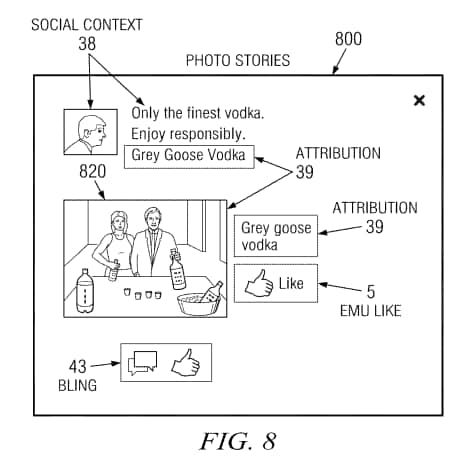Facebook wants to turn its users into micro-influencers

You might have heard about micro-influencing and how it appeals to brands that want to have their products nonchalantly advertised by ‘normal’ users via social media platforms. What you might have not heard of—as, unsurprisingly, it hasn’t been ‘advertised’ much—is the patent that Facebook filed last week in the U.S. for ‘computer-vision content detection for sponsored stories’. What this means is that the social media powerhouse has developed a system that could turn users’ uploaded photographs into automated sponsored posts.
The new patent describes how Facebook would scan users’ photos to identify the products casually displayed within them, to then send the image to the featured brand, who could decide to boost the post to the users’ network. According to this patent, if someone posts a selfie of themselves sunbathing and in the corner of the picture appears any branded sun cream, this person could potentially become an unintentional promoter of the lotion’s brand across their friends’ feeds without being aware of it, nor benefit from it.
The technology that can turn the patent into a working system already exists. Last year Facebook launched a tool called Rosetta, an AI-powered photo scanning that can scan more than a billion photographs and stills from videos every day, and identify texts displayed within the pictures (on products, signs or even clothing), including any brand names. By using this AI technology, Facebook would not only be able to gather an increasing number of its users’ personal information, but it could also create a ‘heat map’ for brands, providing them with analytics on not only by who, but also where, their products are being consumed.

Both Instagram and Facebook users, even those who are not paid for it, already upload thousands of images featuring branded products, so it’s no surprise that some visionary marketer thought of taking advantage of this ready-made advertising. As consumers start to get sceptical of celebrities and mega-influencers promoting products, brands, marketing agencies, and most noticeably Facebook, are paving the way for a new wave of digital advertising—one that is based on the power of the many rather than on the popularity of one individual. Companies such as Zyper for instance, help brands find consumers willing to join its community and advocate its products as ‘fans’ via social media. But unlike Facebook’s new system, users have to apply to the platform to become micro-influencers, instead of having their photographs scanned and automatically sold.
The patent does not mean Facebook will certainly end up using this service, but it’s hard to think of one reason why it wouldn’t want to do so. At its current state, though, the patent is only a draft on how this system could be working, and more importantly under which rules, considering that for now, it’s not explicit whether users would be given the possibility to opt out of the plan.
As the influencers phenomena continues to rock the marketing world, micro-influencing is definitely set to overturn the industry even more. By creating a horde of individual advertisers (whether informed of their role or not), companies such as Zyper and Facebook are turning customers into promoters, and in doing so, they are not only drastically changing the traditional mechanism of marketing, but they are returning to one of the most subtle forms of advertising: masses of people sharing the products they use everyday with their digital network.




